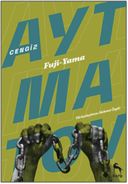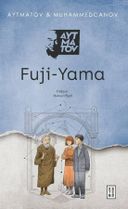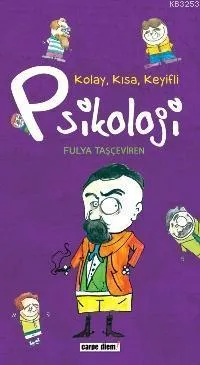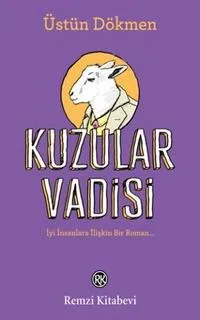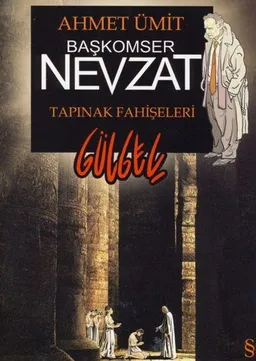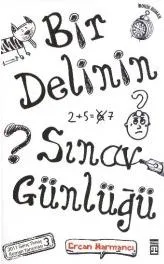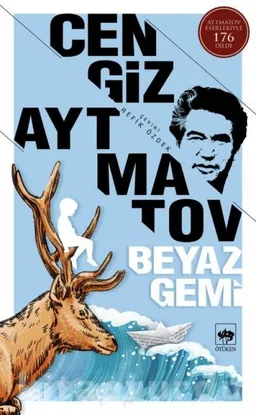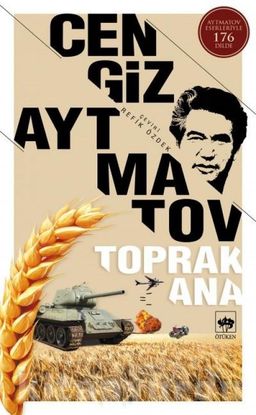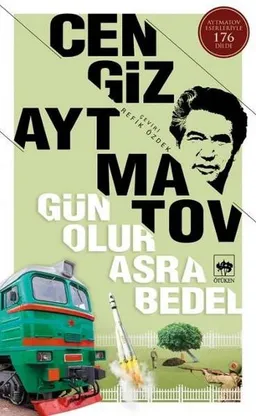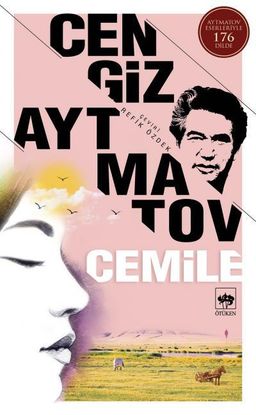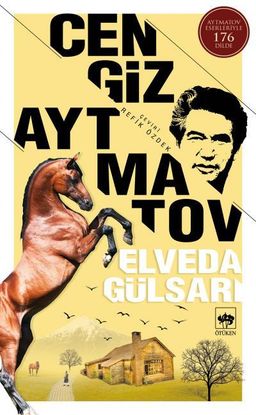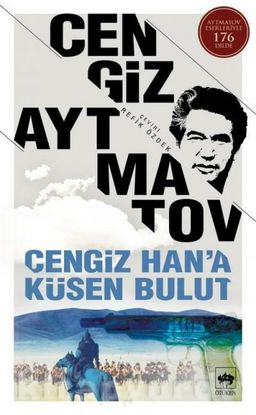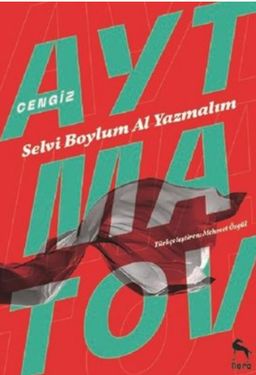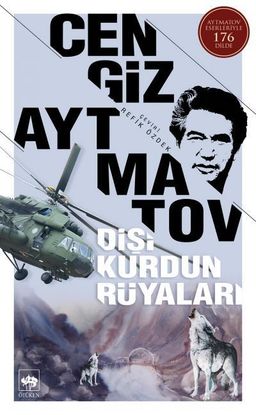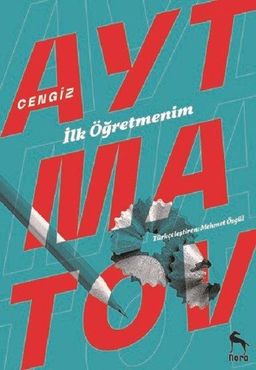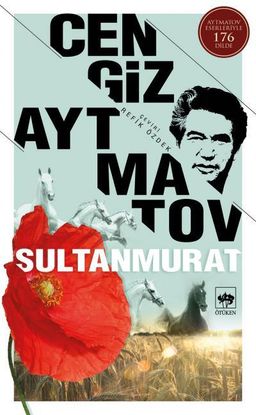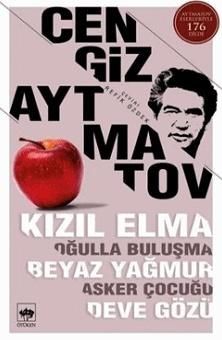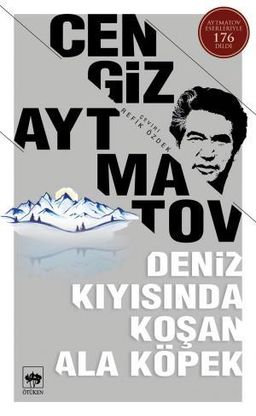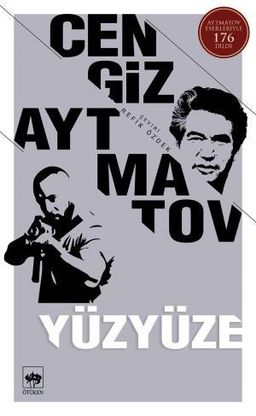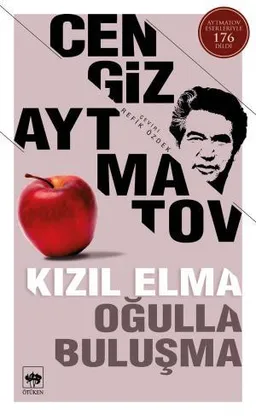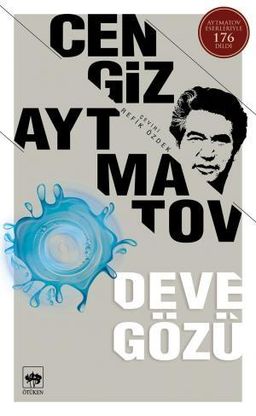Fuji-Yama
Cengiz AytmatovAbout Fuji-Yama
Fuji-Yama subject, statistics, prices and more here.About
Hikâye ve romanlarıyla tanınan Cengiz Aytmatov, bir tiyatro oyunuyla karşımıza çıkıyor bu kez.
Çok yönlülüğüyle dikkat çeken bu eserin dar alanında, savaş sırasında arkadaşlarını ihbar ederek sürgüne gönderilmesine neden olan kişiler arasındaki dostluk, hak, adalet, güven, sevgi gibi duygular sorgulanır. Daha geniş alanında ise insanoğlunun saflığı, toplumdaki konumu, toplum ve zaman önündeki sorumluluğu gibi meseleler etrafında tartışılır ve sanata dair çok çeşitli sorulara yanıt aranır. Sürgüne gönderilen ve bunun sonucunda yeteneğinden olan arkadaşları Sabur’un vaktiyle sorduğu soru, eserin de temel sorusudur aslında: İnsan nasıl insan olmalıdır?
Author: Cengiz Aytmatov
Author: Kaltay Muhammedcanov
Translator: Mehmet Özgül
Türler:
Estimated Reading Time: 2 hrs. 57 min.Page Number: 104Publication Date: June 2017Publisher: Nora KitapISBN: 9789752473119Country: TürkiyeLanguage: TürkçeFormat: Karton kapak
Book Statistics
Reader Profile of the Book
Kadın% 54.2
Erkek% 45.8
0-12 Yaş
13-17 Yaş
18-24 Yaş
25-34 Yaş
35-44 Yaş
45-54 Yaş
55-64 Yaş
65+ Yaş
About the Author
Cengiz AytmatovYazar · 68 books
This text has been automatically translated from tt. Show Original
Cengiz Aytmatov, (Kyrgyz: Чыңгыз Айтматов (Çıňğız Aytmatov), Russian: Чингиз Торекулович Айтматов) (b. 12 December 1 928, Kyrgyzstan - 10 June 2008, Germany).
Famous Kyrgyz Turk writer, journalist, translator and politician. He was born on December 12, 1928 in the village of Sheker of Talas province in northwestern Kyrgyzstan. His father, Torekul Aytmatov, was a distinguished statesman in Soviet Kyrgyzstan, but was arrested in 1937 and executed by firing squad in 1938. His mother, Nagima Hamziyevna Abdulvaliyeva, a Tatar girl, was a theater actress. Its name was inspired by Genghis Khan.
His youth coincided with a troubled period. At that time, he had to struggle with the political system that was just beginning to establish itself, and also with the war. He started working at a very young age; because II. The effects of World War II on the USSR also affected young people. Since adults were at war, young people had a great responsibility. At the age of fourteen, he joined the secretariat in his village. Here he worked in jobs such as counting agricultural machinery and tax collector. From his village, he went to Kazakhstan and studied at Cambul Veterinary Technical School. Later, he went to Bishkek, the current capital of Kyrgyzstan, and continued his education at the Frunze Agricultural Institute. He then transferred to the Maxim Gorky Literary Institute and studied in Moscow between 1956 and 1958. He started writing in the Pravda newspaper in these years. He became famous with his works and was accepted as a member of the Union of Soviet Writers in 1957. He received the Lenin Prize in 1963. His works have been translated into more than one hundred and fifty languages. He represented the Soviet Union and the Russian Federation as ambassador between 1990 and 1994, and then the Kyrgyz Republic until 2008.
Aytmatov fell ill on May 16, 2008, in Kazan, the capital of Russia's Republic of Tatarstan, where he went to film the movie of his novel "A Day Will Be Worth a Centuries" and was brought to Germany for treatment with a diagnosis of kidney failure. Cengiz Aytmatov, who was treated at the Clinicum Nord in Nuremberg, Germany, fell into a coma. He died in Nuremberg on June 10, 2008.
Books
Beyaz Gemi
8.2/10
Toprak Ana
8.9/10
Gün Olur Asra Bedel
8.4/10
Cemile
7.8/10
Elveda Gülsarı
8.4/10
Cengiz Han'a Küsen Bulut
8.5/10
Selvi Boylum Al Yazmalım
8.8/10
Dişi Kurdun Rüyaları
8.7/10
İlk Öğretmenim
9/10
Sultanmurat
8.3/10
Kızıl Elma - Oğulla Buluşma - ...
8.1/10
Deniz Kıyısında Koşan Ala Köpe...
8.5/10
Yüzyüze
8.4/10
Kızıl Elma - Oğulla Buluşma
8.2/10
Deve Gözü
7.8/10
